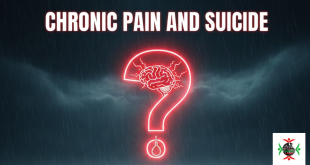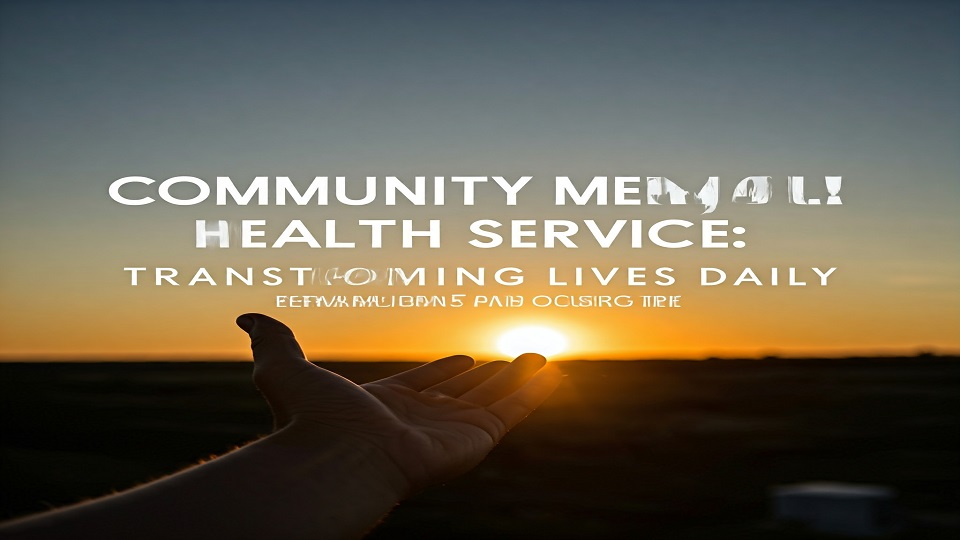
Community Mental Health Services provide essential support for individuals dealing with mental health issues. These services include counseling, crisis intervention, and rehabilitation.
Community Mental Health Services play a crucial role in improving mental well-being. They offer accessible and comprehensive support to individuals experiencing mental health challenges. Services include counseling, crisis intervention, and rehabilitation. These services aim to promote recovery, reduce stigma, and enhance the quality of life for affected individuals.
Mental health professionals work closely with clients to develop personalized treatment plans. This ensures that each person receives the care they need. Community Mental Health Services strive to make mental health care more accessible. They bridge the gap between individuals and the resources they require for a healthier, happier life.
Role Of Community Services
Community mental health services play a crucial role in supporting individuals facing mental health challenges. These services provide essential care and resources within the community, making mental health support accessible and personalized. Let’s explore the important roles these community services play.
Support Systems
Community mental health services create strong support systems for individuals. These systems include family, friends, and community members. They help people feel connected and understood. Support systems offer:
- Emotional support: Listening and understanding feelings.
- Practical help: Assisting with daily tasks and responsibilities.
- Peer support: Sharing experiences with others who have similar challenges.
These support systems are vital for recovery and well-being. They reduce feelings of isolation and loneliness. Community services also organize group activities and workshops. These events help people build relationships and share their experiences in a safe space. Strong support systems foster resilience and hope.
Access To Care
Access to care is a key aspect of community mental health services. These services bring care closer to home. They make it easier for people to get the help they need. Key benefits of easy access to care include:
- Early intervention: Addressing issues before they become severe.
- Convenience: Reducing travel time and costs for appointments.
- Continuity of care: Ensuring ongoing support and follow-up.
Community services often offer a range of care options. These include:
| Service | Description |
|---|---|
| Outpatient care | Regular therapy sessions without hospital stays. |
| Mobile crisis teams | Emergency support that comes to the person in need. |
| Support groups | Regular meetings with peers to share and support. |
These varied options ensure everyone finds the help that suits their needs. Access to care in the community enhances overall mental health and well-being.
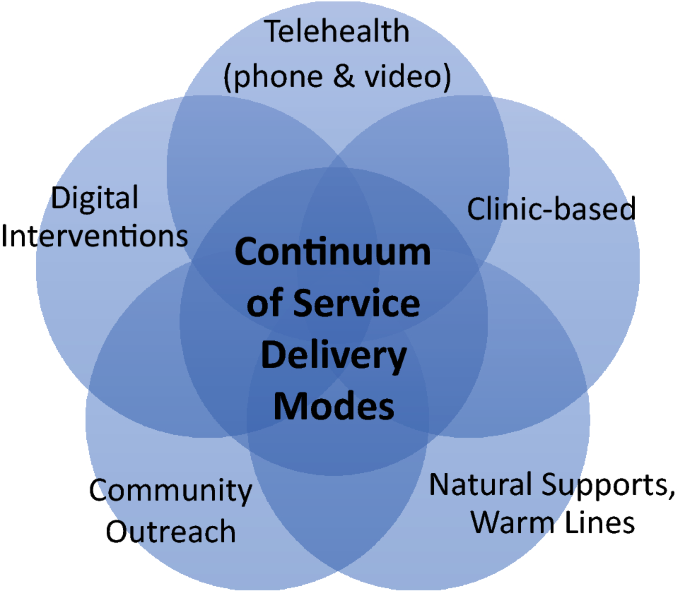
Credit: link.springer.com
Types Of Services Offered
Community Mental Health Services provide essential support to individuals facing mental health challenges. These services are designed to improve mental well-being and offer a range of support options. The types of services offered include various forms of counseling, therapy, and crisis intervention. Each service is tailored to meet the unique needs of the community, ensuring that everyone receives the care they deserve.
Counseling And Therapy
Counseling and therapy are core components of community mental health services. They provide a safe space for individuals to express their feelings and work through challenges. Professionals, such as licensed therapists and counselors, guide these sessions.
There are different types of counseling and therapy available:
- Individual Therapy: One-on-one sessions with a therapist.
- Group Therapy: Sessions with multiple participants, fostering peer support.
- Family Therapy: Involves family members to address collective issues.
- Couples Therapy: Helps partners improve their relationship dynamics.
Each type of therapy has its own benefits:
| Type of Therapy | Benefits |
|---|---|
| Individual Therapy | Personalized attention and deep exploration of issues. |
| Group Therapy | Peer support and shared experiences. |
| Family Therapy | Improves family communication and resolves conflicts. |
| Couples Therapy | Enhances relationship skills and understanding. |
Therapists use various techniques, including cognitive-behavioral therapy (CBT), talk therapy, and mindfulness. These methods help individuals manage their emotions, develop coping strategies, and improve their overall mental health.
Crisis Intervention
Crisis intervention is crucial for individuals experiencing immediate mental health crises. These services aim to stabilize the situation and provide immediate support. Crisis intervention teams are often available 24/7.
Key components of crisis intervention include:
- Hotlines and Helplines: Provide immediate support and guidance over the phone.
- Mobile Crisis Teams: Professionals who can visit individuals in crisis.
- Crisis Centers: Safe places where individuals can receive in-person support.
- Emergency Room Support: Mental health professionals available in hospitals.
Crisis intervention services focus on:
- Assessment: Evaluating the individual’s mental state and needs.
- Stabilization: Providing immediate care to stabilize the situation.
- Support: Offering emotional support and practical assistance.
- Referral: Connecting individuals to ongoing support services.
These services are vital for preventing harm and ensuring the safety of individuals in crisis. They play a significant role in the community’s mental health landscape, providing essential and immediate care.
Benefits For Individuals
Community Mental Health Services provide critical support for people facing mental health challenges. These services offer numerous benefits for individuals, enhancing their overall quality of life. From fostering improved well-being to promoting social integration, the positive impacts are profound.
Improved Well-being
Community Mental Health Services play a vital role in improving individuals’ well-being. These services offer personalized care plans, ensuring each person receives the appropriate support. Regular mental health check-ups help in early detection of issues, preventing them from becoming severe.
Key benefits include:
- Access to Therapy: Professional therapists provide coping strategies and emotional support.
- Medication Management: Proper medication helps manage symptoms effectively.
- 24/7 Crisis Support: Immediate help during mental health emergencies.
Here’s a table showcasing the improved well-being benefits:
| Benefit | Impact |
|---|---|
| Access to Therapy | Reduces stress and anxiety |
| Medication Management | Stabilizes mood |
| 24/7 Crisis Support | Provides immediate safety |
Regular engagement with mental health services ensures consistent monitoring of mental health status. This proactive approach prevents the escalation of mental health issues.
Social Integration
Community Mental Health Services also enhance social integration. Individuals with mental health challenges often face isolation. These services help them reconnect with society.
Ways they promote social integration:
- Support Groups: Offer a safe space to share experiences and build connections.
- Community Activities: Encourage participation in local events and activities.
- Employment Assistance: Help individuals find and retain jobs.
The table below highlights the social integration benefits:
| Service | Benefit |
|---|---|
| Support Groups | Builds a sense of belonging |
| Community Activities | Enhances social skills |
| Employment Assistance | Improves financial stability |
By participating in community activities, individuals gain confidence and improve their social skills. These services create opportunities for individuals to form meaningful relationships and lead fulfilling lives.

Credit: www.nswmentalhealthcommission.com.au
Challenges Faced
Community Mental Health Services play a vital role in supporting individuals with mental health needs. Despite their importance, these services face numerous challenges. Addressing these issues is crucial for ensuring accessible and effective mental health care for everyone in the community. This section explores some of the key challenges faced by Community Mental Health Services.
Funding Issues
Funding issues are a significant challenge for Community Mental Health Services. Limited resources make it hard to maintain and expand services. Without proper funding, these services struggle to meet the growing demand.
Several factors contribute to funding problems:
- Government budget cuts reduce the available funds for mental health programs.
- Inadequate insurance coverage limits access to mental health care for many individuals.
- High operational costs make it difficult to sustain services over the long term.
These funding issues have a direct impact on service quality and availability. A lack of funds can result in:
- Reduced staff numbers
- Limited training opportunities for mental health professionals
- Shortage of essential resources and facilities
The following table highlights the impact of funding issues on various aspects of Community Mental Health Services:
| Aspect | Impact |
|---|---|
| Staffing | Reduced staff leads to longer wait times for patients. |
| Training | Limited training results in outdated practices. |
| Resources | Shortage of resources affects service quality. |
Stigma And Awareness
Stigma and lack of awareness are major hurdles for Community Mental Health Services. Negative perceptions about mental health can prevent people from seeking help. This stigma can be deeply rooted in cultural and societal norms.
Several issues arise due to stigma and lack of awareness:
- Fear of judgment keeps individuals from discussing their mental health struggles.
- Misunderstanding of mental health issues leads to misinformation and myths.
- Lack of education on mental health topics hinders early intervention and support.
Addressing stigma involves:
- Conducting awareness campaigns to educate the public.
- Offering mental health education in schools and workplaces.
- Encouraging open discussions about mental health to normalize seeking help.
Efforts to reduce stigma and increase awareness can lead to:
- More individuals seeking timely help
- Better support networks within communities
- Improved overall mental health outcomes
Community Involvement
Engaging the community creates a supportive environment and enhances the effectiveness of mental health programs.
Volunteer Opportunities
Volunteering in community mental health services offers many ways to make a difference. Volunteers can provide support, companionship, and help with daily activities. Here are some areas where volunteers can contribute:
- Peer Support Programs: Volunteers with lived experience offer support to others facing similar challenges.
- Activity Coordination: Help organize and run group activities, such as arts and crafts, sports, or social gatherings.
- Administrative Support: Assist with office tasks, data entry, and managing appointments.
- Fundraising Events: Help plan and execute events to raise funds for mental health programs.
Volunteering not only benefits those receiving services but also provides personal growth opportunities for volunteers. Being a volunteer can boost your own mental health and well-being. It fosters a sense of purpose and community connection.
| Volunteer Role | Key Responsibilities |
|---|---|
| Peer Support | Offer empathy, share experiences, and provide guidance. |
| Activity Coordinator | Organize and lead group activities. |
| Admin Support | Assist with clerical work and manage schedules. |
| Fundraising Helper | Plan and support fundraising events. |
Local Partnerships
Local partnerships are crucial for enhancing community mental health services. These collaborations bring together different organizations to provide comprehensive support. Here are some examples of beneficial partnerships:
- Healthcare Providers: Collaborating with local clinics and hospitals ensures a holistic approach to mental health care.
- Schools and Universities: Working with educational institutions helps address mental health issues among students.
- Non-Profit Organizations: Partnering with non-profits can provide additional resources and support for mental health programs.
- Local Businesses: Businesses can contribute through sponsorships, donations, and employee volunteer programs.
These partnerships create a network of support, making mental health services more accessible and effective. Collaborating with local entities also helps in raising awareness about mental health issues and reducing stigma.
| Partner Type | Contribution |
|---|---|
| Healthcare Providers | Medical support, therapy, and counseling services. |
| Schools/Universities | Mental health education and student support programs. |
| Non-Profits | Resources, workshops, and community outreach. |
| Local Businesses | Sponsorships, donations, and volunteer opportunities. |
Building strong partnerships ensures that community mental health services can reach and support more individuals effectively.
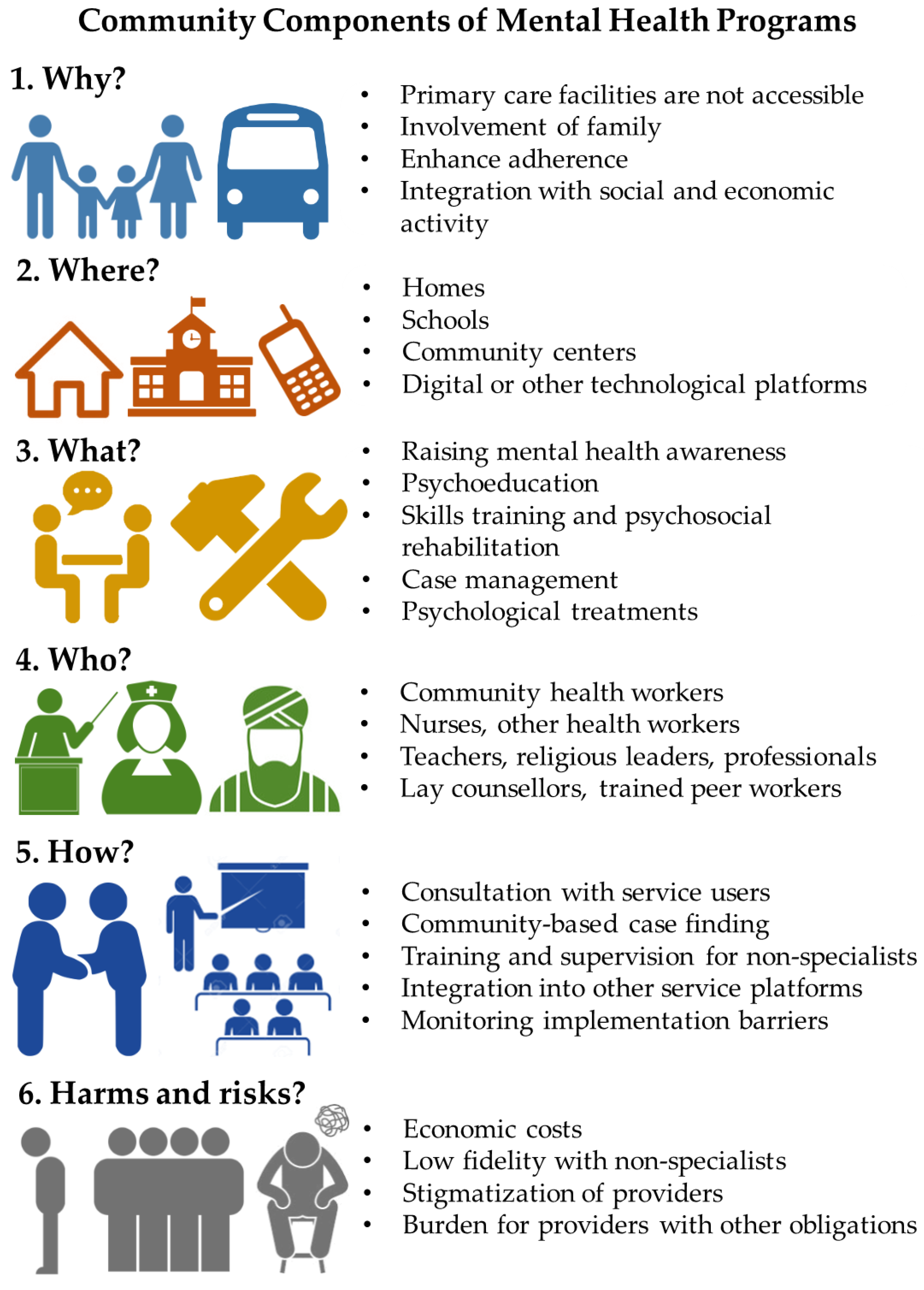
Credit: www.mdpi.com
Cultural Competence
Community Mental Health Services play a crucial role in supporting individuals from various backgrounds. One important aspect of these services is Cultural Competence. This involves understanding and respecting the diverse cultural backgrounds of individuals seeking help. By doing so, mental health professionals can offer more effective and personalized care.
Tailored Services
Cultural Competence ensures that mental health services are tailored to meet the unique needs of different communities. Each culture has its own set of beliefs, traditions, and values that can influence how individuals perceive mental health. Understanding these differences helps in creating services that are more accessible and effective.
For example, consider the following tailored approaches:
- Language Services: Providing services in multiple languages to break down communication barriers.
- Community Outreach: Engaging with community leaders to build trust and spread awareness about mental health services.
- Customized Programs: Developing programs that reflect the cultural practices and values of the community.
Here’s a table summarizing how different services can be tailored:
| Service | Tailored Approach |
|---|---|
| Therapy Sessions | Include culturally relevant examples and scenarios. |
| Support Groups | Facilitate groups with shared cultural backgrounds. |
| Educational Materials | Translate materials and use culturally appropriate imagery. |
By focusing on tailored services, mental health professionals can ensure that their care is both effective and respectful of cultural differences.
Diverse Populations
Community Mental Health Services must address the needs of diverse populations. Different groups may have unique mental health challenges based on their cultural, social, and economic backgrounds. Recognizing these challenges is essential for providing comprehensive care.
Key considerations for diverse populations include:
- Understanding Cultural Stigma: Some cultures may view mental health issues with stigma, making it harder for individuals to seek help.
- Economic Barriers: Low-income communities might lack access to affordable mental health services.
- Social Support Systems: The role of family and community in different cultures can influence how support is provided and received.
Here’s a table showing different population groups and their unique needs:
| Population Group | Unique Needs |
|---|---|
| Immigrants | Language support and understanding of migration stress. |
| Refugees | Trauma-informed care and cultural integration support. |
| Low-Income Families | Affordable services and economic assistance programs. |
Mental health professionals should continuously educate themselves about the diverse needs of the populations they serve. This ongoing education helps in providing more inclusive and effective care.
Technology In Services
Community mental health services play a crucial role in supporting individuals dealing with mental health issues. Technology has revolutionized these services, making them more accessible and efficient. With advancements in digital tools, mental health professionals can now provide better care and support to their patients.
Telehealth Options
Telehealth has transformed mental health services by offering remote consultations and therapy sessions. This is especially beneficial for those living in remote areas or with mobility issues. Patients can connect with therapists through video calls, making it easier to seek help.
Some key benefits of telehealth options include:
- Convenience: Access therapy from the comfort of your home.
- Flexibility: Schedule sessions at times that work best for you.
- Privacy: Maintain confidentiality with secure video platforms.
A study showed that telehealth is as effective as in-person therapy for many patients. Here’s a quick comparison:
| Aspect | Telehealth | In-Person |
|---|---|---|
| Accessibility | High | Medium |
| Cost | Lower | Higher |
| Flexibility | High | Low |
Digital Resources
Digital resources are another significant addition to community mental health services. These resources include mobile apps, online support groups, and educational websites. They provide valuable information and tools to manage mental health effectively.
Popular digital resources include:
- Mental health apps: Apps like Headspace and Calm offer meditation and relaxation exercises.
- Online support groups: Websites like 7 Cups provide a platform to connect with peers facing similar issues.
- Educational websites: Sites like NAMI offer articles, videos, and guides on various mental health topics.
These resources offer several advantages:
- 24/7 Availability: Access help anytime, day or night.
- Affordability: Many digital resources are free or low-cost.
- Anonymity: Seek help without revealing your identity.
By leveraging these digital tools, community mental health services can reach a broader audience and provide continuous support. Technology empowers individuals to take control of their mental well-being with ease.
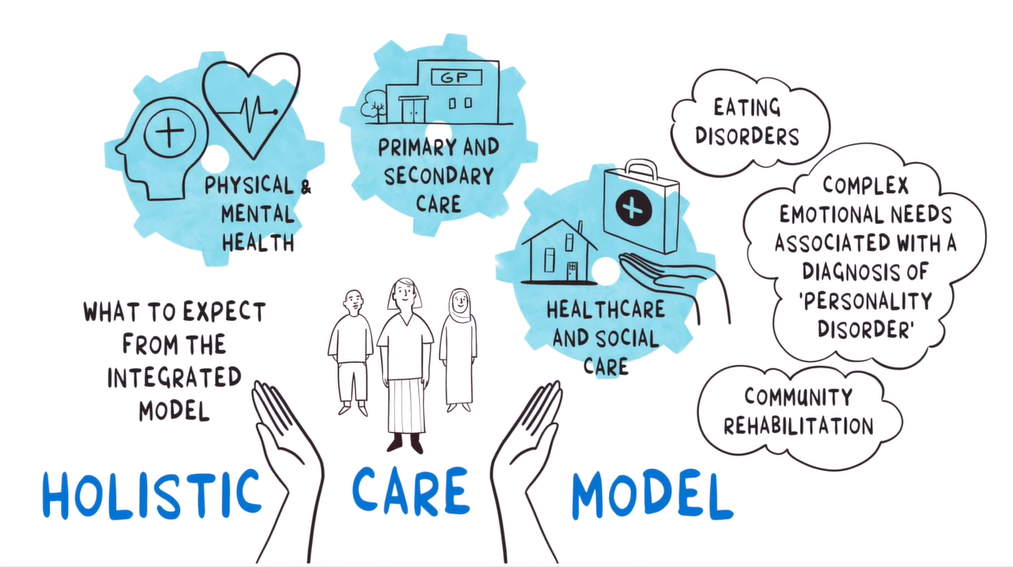
Credit: www.rcpsych.ac.uk
Future Of Community Mental Health
Community Mental Health Services are crucial for providing support and care to those in need. The future of community mental health looks promising with new innovations and policy changes. These advancements aim to improve accessibility, effectiveness, and overall well-being for individuals within communities.
Innovative Approaches
The future of community mental health services is bright with many innovative approaches. These new methods aim to make mental health care more accessible and effective.
Telehealth: Telehealth allows people to receive mental health care from their homes. This is especially helpful for those in remote areas. It also provides a comfortable setting for patients.
Mobile Apps: Mobile apps offer tools for managing mental health. They can track moods, provide relaxation exercises, and offer virtual therapy sessions. Some popular apps include:
- Headspace
- Calm
- Better Help
Community Programs: These programs focus on peer support and group therapy. They create a sense of belonging and reduce feelings of isolation.
AI and Chatbots: AI tools and chatbots can provide immediate support. They help in initial assessments and offer coping strategies. These tools are available 24/7, making them highly accessible.
Here’s a quick comparison of these innovative approaches:
| Approach | Benefits |
|---|---|
| Telehealth | Remote access, convenience |
| Mobile Apps | Self-management, on-the-go support |
| Community Programs | Peer support, social inclusion |
| AI and Chatbots | 24/7 availability, immediate help |
Policy Changes
Policy changes play a crucial role in shaping the future of community mental health services. These changes aim to make mental health care more inclusive and effective.
Increased Funding: More funds are being allocated to mental health services. This allows for better resources, more staff, and improved facilities.
Integration with Primary Care: Policies now encourage integrating mental health services with primary care. This ensures that mental health is treated as a vital part of overall health.
Insurance Coverage: New policies ensure that mental health services are covered by insurance. This reduces the financial burden on patients and encourages more people to seek help.
Workplace Mental Health: Policies are now focusing on mental health in the workplace. They ensure employees have access to mental health resources and support.
Here are some key policy changes:
- Increased Funding: More resources for mental health services.
- Integration with Primary Care: Holistic health approach.
- Insurance Coverage: Financial ease for patients.
- Workplace Mental Health: Support for employee well-being.
These policy changes aim to create a more supportive environment for those needing mental health care. The focus is on making services accessible, affordable, and integrated with other health services.

Credit: www.who.int
References/further Reading
Community Mental Health Services play a vital role in supporting individuals with mental health needs within their communities. Understanding these services can be complex, so it’s crucial to refer to reliable sources for more information. Below, you will find a list of references and further readings that delve deeper into various aspects of community mental health services.
Books And Journals
- “Community Mental Health: Challenges for the 21st Century” – This book provides an overview of the modern challenges faced by community mental health services.
- “The Journal of Community Psychology” – Offers peer-reviewed articles on research and practice in community psychology.
- “Mental Health Services: A Public Health Perspective” – Discusses the public health approach to mental health services, including community-based strategies.
Online Articles And Websites
- World Health Organization (WHO) – Mental Health – Provides global perspectives and guidelines on mental health services.
- National Alliance on Mental Illness (NAMI) – Contains valuable resources and information on community mental health services.
- Substance Abuse and Mental Health Services Administration (SAMHSA) – Offers extensive resources and support for mental health services in communities.
Research Papers And Reports
- “The Effectiveness of Community-Based Mental Health Services: A Review” – Summarizes the evidence on the effectiveness of community mental health services.
- “Access to Mental Health Services in Community Settings” – Examines barriers and facilitators to accessing mental health services in community settings.
- “Community Mental Health and Primary Care Integration” – Discusses the integration of mental health services with primary care.
Government Publications
| Title | Link |
|---|---|
| National Mental Health Strategy | health.gov/national-mental-health-strategy |
| Community Mental Health Framework | nhs.uk/community-mental-health-framework |
| Local Mental Health Action Plans | local.gov/mental-health-action-plans |
Frequently Asked Questions
What Are Community Mental Health Services?
Community mental health services provide support and treatment for individuals with mental health issues. They offer counseling, therapy, and crisis intervention within the community. These services aim to improve mental wellness and promote recovery.
Who Can Access Community Mental Health Services?
Anyone experiencing issues can access community mental health services. These services cater to individuals of all ages, including children, adults, and seniors. They are often available through local health departments or non-profit organizations.
How Do Community Mental Health Services Help?
Community mental health services help by providing tailored support and treatment. They offer therapy, counseling, and medication management. These services aim to improve mental health, promote recovery, and enhance quality of life.
Where Are Community Mental Health Services Offered?
Community mental health services are offered in various settings, including clinics, hospitals, and community centers. Mobile units and online platforms also provide these services. Accessibility depends on local resources and infrastructure.
Conclusion
play a crucial role in supporting individuals. They provide accessible, affordable, and comprehensive care. These services help improve mental well-being and build stronger communities. Investing in them is essential for a healthier society. Let’s continue to support and expand these vital resources for everyone’s benefit.
 Prevention from Suicide, Addiction, Narcotics and Pollution. Withdrawal and Recovery Facts of Narcotics | Symptoms of Suicidal thoughts & Ideations | Effects of Environment Pollution | Understand Addiction withdrawal
Prevention from Suicide, Addiction, Narcotics and Pollution. Withdrawal and Recovery Facts of Narcotics | Symptoms of Suicidal thoughts & Ideations | Effects of Environment Pollution | Understand Addiction withdrawal

